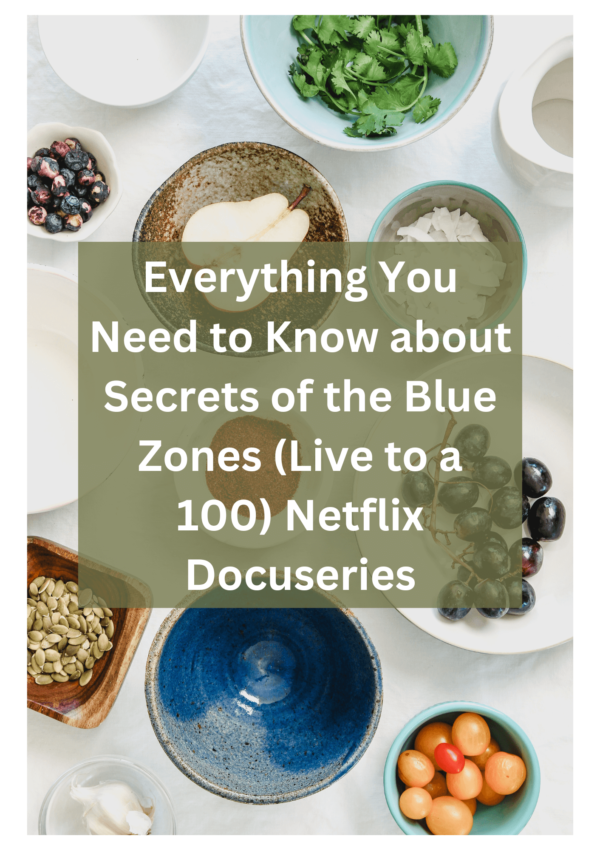He threw a quick jab at me. My head bobbled to the side just enough to be rattled, but not enough to be out of tolerance. They wanted us to get hit, just not too hard.
I was thankful it was only the instructive jabs of the head instructor, or Master, of my little karate dojang in Houma, Louisiana. I still recall the sparring sessions.
“It’s my bread and butter,” he said of his constant jabs to my exposed head.
I had never heard the expression before, and like any deep natured kid, I remember wondering what my bread and butter in life was.
Maybe you’ve wondered the same thing.

Clearly for me it had nothing to do with fighting or karate, even though I worked hard to be technically on point and studied my Korean terms often, going on to win a slew of cheap Dollar Tree trophies.
The question used to stump me and in many ways it still does. Take this blog for instance, figuring out what to write about and attempting to find the sweet spot in the realm of content creation is a tough question to answer. It has been a genuine struggle working to find out what the bread and butter content of Pete Snaps will be.
After months and months (let’s be honest, it’s been years) of consistent writing, looking for consistent themes, tones, genres, or topics, finding what works for me with the filter of what may work for a potential audience, is not an easy task.
What is my bread and butter from a business and value standpoint?
What can I offer the people who may visit this site, provided I can figure out how to troubleshoot the inevitable issues of running a website, and even more the alchemy of the Google algorithm and keyword research.
What exactly would my business model be?
The answer seems straightforward for true niche blogs that are solely run as businesses. This blog though, hasn’t turned out that way. And why should it? Look at the name.
Pete Snaps.
It inherently means I’ll offer snapshots into my thinking on any given topic. So while I may want to see my time spent developing a digital space in the ever-growing digital marketplace as time spent developing a “business”, the more I write, the more I find myself writing from a holistic stance with every theme including some element of catharsis and some open-ended conversational conclusion that may help those that relate to the ideas here, but that mostly helps me.
I’m then faced with the question of do I cut these words? Do I pare down and trim and edit away all the fluff elements and just get to the point already? The fluff being the ‘me’ part, the creative part, the ‘not really to the point, but at least it sounded flowy’ part. Or is that very style to become the style of Pete Snaps?
From where I currently sit, I think it’ll be a mixture of this style and a more technical and to the point style. We’ll see how that plays out.
This is only day one.
I know I’ve had to get over the desire to simply, and in a removed manner, deliver a thought provoking article that may help someone approach money or lifestyle in a new light. Those aspirations have given way to the constant stream of self reflection that spills out, inevitably. In a way, finding my bread and butter is coming to terms with the fact that this blog is cathartic at its core, at least for now, and while that is not the most business savvy thing to do, it is what it is, and it is the stage of writing where I currently find myself.
Maybe it’s just a stage.
To me, bread and butter is the time-tested thing that you go back to. It’s the ‘joie de vivre’, it’s the thing you enjoy and always end up circling back to.
Like I imagine many of us feel, I didn’t feel like I was good at anything growing up. I still feel that way. I had a few ideas and knew that I liked to write, but was that enough? Figuring out what to ‘do’ is a long and continual process I would finally learn.Now that I’ve shared the main struggle of choosing what to focus on with this blog, let’s look at a few things that have helped me get to this point, and some things that may possibly help you.
5 Steps to Find Your Bread and Butter
Let’s spend some time unpacking the bread and butter question with regards to you.
In this post, we’ll attempt to shed light on how you can determine both your livelihood and your calling.
…ambitious, I know.
This post is aimed at two types of people:
- People who may be in a creative, business, or career rut who want to refocus.
- People who are graduating high school, college, or even graduate school and want to dial in on their specific angle in life, their ambitions, or their meaning.
If you’d like to skip to a particular section here’s an outline.
- Answer your why.
- What do you gravitate towards?
- What do you consider your gifts?
- Career vs. calling.
- Put in the time. Put in the work.
1. Answer Your Why
Answering your why is step 1. If you don’t know your ‘why’, you’re going to have some difficulties moving forward with filtering through all the things that may interest you or that you may gravitate towards. Answering your why will help you triage what is important to you.
Your why is just that, it’s yours.
In that sense, you can be as shallow or as deep with answering this question as you’d like. It’s your answer. Shallow here is not a dig at those who may not have a super deep and defined ‘why’ that holds all sorts of nuances, but rather a means of recognizing that there is a spectrum of answers out there, and that you may only know the extent that you currently know.
Let’s brainstorm:
- Do you think it is important to determine your bread and butter / that is, the area of your expertise, the area you’ll likely work at in your life, whether that be your artistic endeavors, your side hustles, your main hustles, your career, or your calling?
- If so, why?
- If not, why?
- List a few things you’d like to see happen in your life.
- What role, if any, does your career or ‘living’ play in answering your why?
- What would you say are your core values?
- What would you say is the essence of you being on this earth? Or, what would you say your purpose is?
- enjoyment?
- money?
- achievement?
- family?
- morality?
- peace?
- giving?
- kindness?
- glorifying God?
- serving?
- leading?
- just being?
- Where do you want to be in 5 years? 10 years? (start from here and work backwards).
Some of these questions are difficult to answer, or you may find some of the prompts silly or irrelevant, but it is important to begin to answer questions for yourself, or at least be aware of them. Remember, the goal is building a foundation here so we can move forward in a direction.
2. What Do You Gravitate Towards?
Make a list of the things you gravitate towards or the things that recur in your thought space. What ambitions or desires recur? What are the repeat offenders, if you will.
Most of us have quite a few things we gravitate towards. The goal is to make a list of things, whether hobbies, activities, work, or even mindsets. List out the recurring interests, ambitions, or thought patterns and assess what should stay and what should go.
Obviously not everything should stay. If there’s a recurring thought pattern that is negative, it needs to be taken captive and disregarded. Throw it out. Don’t place weight on something just because it is recurring. This is something I had to learn from ages 12 to now. I actually only just recently started to develop the tools to fight the cycle of a really negative thought life a year or two ago, mainly due to the patience of my husband who has really been a solid voice of encouragement to help me reases, rethink, and train myself to create new, more positive, mental paths.
Now, let’s focus on the desires, goals, or ambitions that recur. Spend some time determining how these things align with your why. Really assess the root of the recurring desires and if they should stay or go.
Typically, you’ll find some of these desires come and go, depending on your personality and experiences. The goal is to create a trend for yourself. Trends are good. Trends act as a baseline. Be sure to measure the trend against what you determined as your foundation in the ‘answer your why’ phase. Some things on the list may need to be developed, but others may need to be put on hold or disregarded.
The act of defining what you gravitate towards creates a working list. A working list is something we can move forward with.
3. What Do You Consider Your Gifts?
Gifts are hard to define, but are certainly a good thing to note when in the throes of discerning what direction to head in. Gifts can manifest themselves in a myriad of different ways. They can be defined as something that comes particularly easy to you, due to an underlying interest or ‘natural’ ability, or as something you find particular fulfillment in. Gifts are often the things that make sense to you or that you just get. I personally like to think of gifts as God-given areas of interest or ease that are meant to be developed in faith and as a means of worship.
In that sense, whether your gifts fall in the soft skill or hard skill realm, or both, I see them as areas to be developed within the parameters of wisdom and practicality. It’s important to acknowledge that while gifts may come easier to you, they still require work and effort to develop. One book in particular that I’ve read, The Talent Code, points to the level of desire and discipline as the driving factors in what will push someone to become gifted in skill over time. So while we can enjoy the initial startup cost being slightly easier with our gifts, we still must put in the work and effort to develop those areas.
However you define gifts, it is also worth noting that in some cases, gifts can also feel like a weight to live up to, in terms of reaching the fullest potential of that area of your life. In that sense, while gifts are typically things that come ‘easier’ to us, they can also result in an extraordinary amount of awareness or weight on our shoulders, which can be paralyzing if we allow it to be.
In short, make a list of your gifts. If you’re struggling to find something to list, think of what others have noted as something you’re good at. Think of what others would come to you for advice for. Next, organize the list in order of importance as you see it. Use this list as another angle of determining your direction or approach to your ‘bread and butter’.
4. Career vs. Calling
This is a common topic in the realm of ‘what’s next’. It’s also a topic that of course could be a whole series of posts by itself, but we’ll just touch on it from a high level vantage point for now.
The core of the career vs. calling conversation is drawing the distinction between how you make your living and what you view as the essence of what your time here on earth should be spent doing.
Career = the work you do in exchange for currency to live your life. It can be of some interest to you, but interest is not required. It puts food on the table, pays the bills, enables generosity, and facilitates the lifestyle you want to live, which also impacts your calling in many ways.
Careers can be:
- Engineering
- Teaching
- Offshore Operator
- Technical Writer
- Sales
- Plumber
- Mechanic
- Accountant
- Nurse
- Information Technology
- Etc.
What you ‘do’ for work often will align with your interests, inpart, but there is usually more of a point to point connection with the currency you can get in exchange for your time performing the task or working the career.
Some people want a few things of interest to be a part of the tick list when it comes to choosing a career. Others will choose a career solely based on what makes the most money or provides the most free time.
Calling is a bit more difficult to define. The main reason being the inherent personal nature of someone’s ‘calling’. Calling is often defined as the role you’d be most difficult to be replaced in. For instance, being a mother or father easily falls into this category.
We can also think of calling as the role that encapsulates the core elements of what you value and what you believe you should spend your time doing. Calling delivers a sense of fulfillment that other activities don’t. Calling is usually discussed apart from money. That’s not to say someone’s calling won’t ever produce income, but rather that money is considered a bonus in this case and certainly not a prerequisite.
Callings can be:
- Mother
- Father
- Engineer
- Pastor
- Writer
- Film maker
- Missionary
- Musician
- Teacher
- Dancer
- Nurse
- Etc.
There are significant overlaps between calling and career. Some careers are callings and some callings are careers. As you work to find your ‘bread and butter’ in life, it is important to determine your career and calling for a couple different reasons.
1) it will help you understand how to channel your gifts and decide how the outworking of that looks.
2) Considering this distinction will help you make decisions when it comes to a career.
5. Put in the Time and Put in the Work
The least glamorous part about the whole idea behind figuring out your ‘bread and butter’ is the time and work required to really give something a shot. Moving in a direction in life, whether that has to do with your career choices or your calling choices, is an extremely nuanced thing with a good amount of hangups and issues.
But at the end of the day, the idea is to take a look at your lists, your brainstorm session, and your gifts and start investing your time and efforts in a direction.
This is of course if you believe that figuring out a direction to move in is important. Personally, I believe it is very important to make moves in a direction and to work at things. So much so that I would consider work a part of everyone’s calling, because a calling without work or action is an idea that never blooms and impacts the world like I believe a calling should.
Putting in the work is also not the end all be all, though it sometimes feels that way, especially with larger projects like starting a business. I can totally see the nuances to that statement.
It is also important to remember, and I’m reminding myself more than anything, that putting in the work should be a fun process. Having the freedom to choose what we work on is truly a gift. In this way, we can strive to make our own ‘joie de vivre’ as we enjoy the freedom to work and grow, and also the freedom to adjust, reassess, and change course if needed while all the while continuing to move forward.
It is this element of nimbleness and willingness to adjust and keep moving that, in my mind, represents the very depth of perception and understanding that often drives the CEOs of the world to be CEOs in the first place.
Remember to take your time discerning your ‘why’, considering what you gravitate towards, and reflecting on your gifts, calling, and career.



